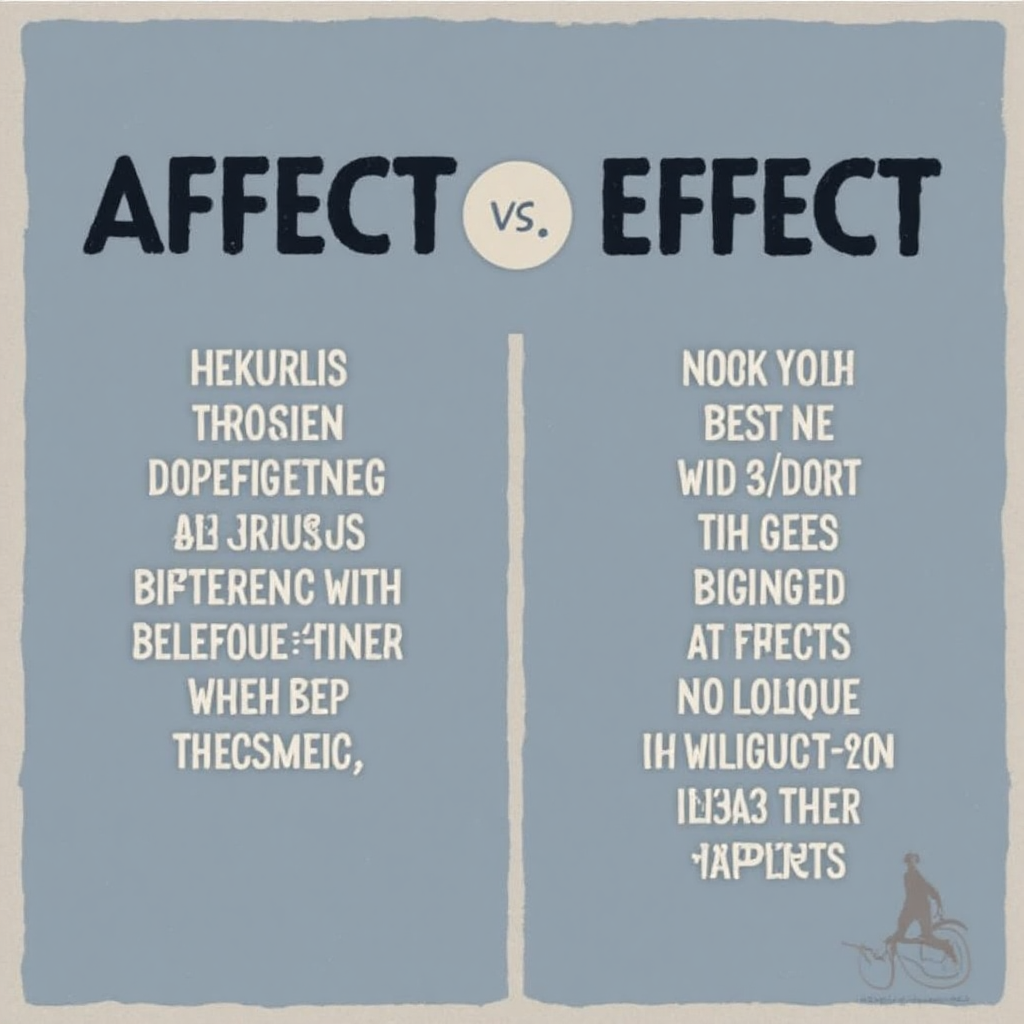“Affect” vs. “Effect” - What’s the Difference?

Have you ever stared at a sentence and wondered whether to use affect or effect? Don’t worry—you’re not alone!
Today, Midoo AI will teach you the simple way to understand these two words, so you’ll never make a mistake again. We’ll also give 5 examples for each to make it super clear.
Affect – Usually a Verb
“Affect” is usually a verb, which means it shows an action. It tells us that something is changing or influencing something else.
Examples:
- The cold weather affects my mood.
- Your speech can affect how people feel.
- Lack of sleep affects your concentration.
- The movie really affected me emotionally.
- Pollution affects the health of animals.
Tip: If you can replace it with “influence”, it’s usually affect.
Effect – Usually a Noun
“Effect” is usually a noun, which means it is the result or outcome of something.
Examples:
- The new law had a big effect on traffic.
- Lack of sleep can have serious effects on your health.
- The medicine had a positive effect on her recovery.
- The movie’s effect on the audience was amazing.
- Social media can have a negative effect on self-esteem.
Tip: If you can replace it with “result”, it’s usually effect.
Quick Trick to Remember
- Affect = Action → Verb → Something happens
- Effect = End result → Noun → The outcome
Example in one sentence:
- The loud noise affects my concentration, and the effect is that I make more mistakes.
Special Cases
Sometimes, English likes to confuse us!
- “Effect” can also be used as a verb meaning “to bring about” (e.g., “to effect change”), but this is rare and mostly formal.
- Example: The new manager effected several positive changes.
- “Affect” can appear as a noun in psychology, meaning emotion or mood, but this is mainly for medical or technical writing.
- Example: The patient displayed a flat affect.
FAQs
Can affect be used as a noun?
Yes, but mostly in psychology or medical contexts. Example: “The patient had a flat affect.”
Can effect be used as a verb?
Yes, but it’s rare and formal. Example: “The new director effected many changes.”
How can I remember the difference?
Think: Affect = Action, Effect = Result.
Can I use affect and effect in the same sentence?
Yes! Example: “The loud noise affects my mood, and the effect is that I feel tired.”
Are there any shortcuts or tricks?
If you can replace the word with “influence”, use affect. If you can replace it with “result”, use effect.
Final Tip from Midoo AI
If you’re ever unsure, remember this simple rule:
- Affect = action (verb)
- Effect = result (noun)
Keeping this in mind will save you from most mistakes and make your writing look polished and professional.